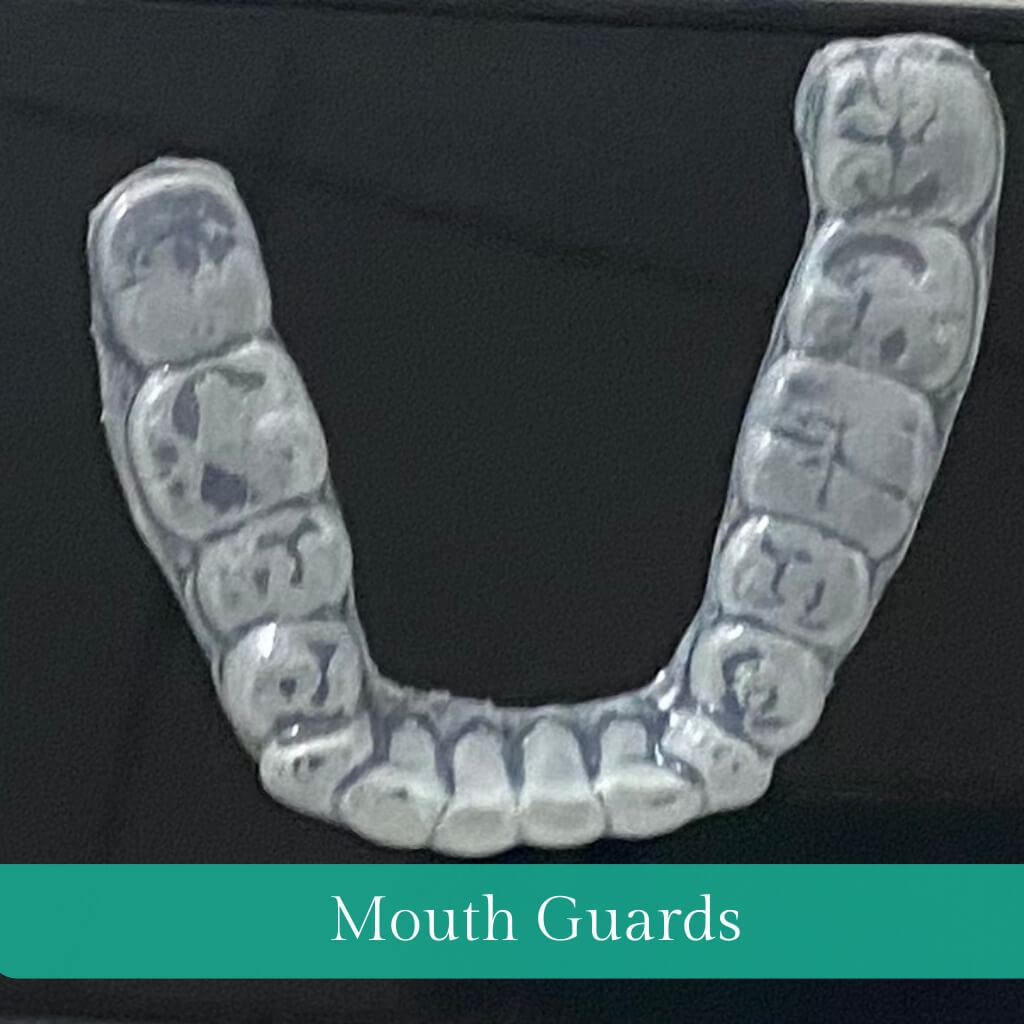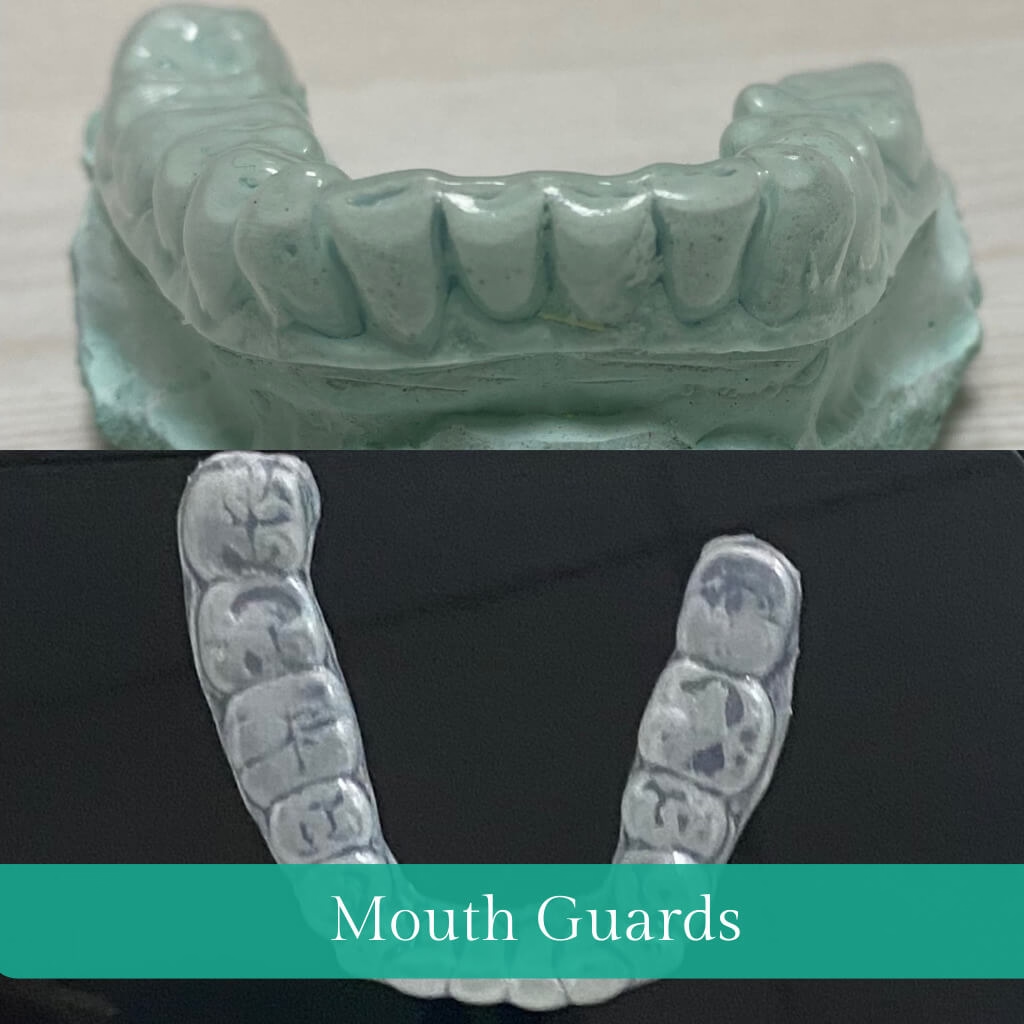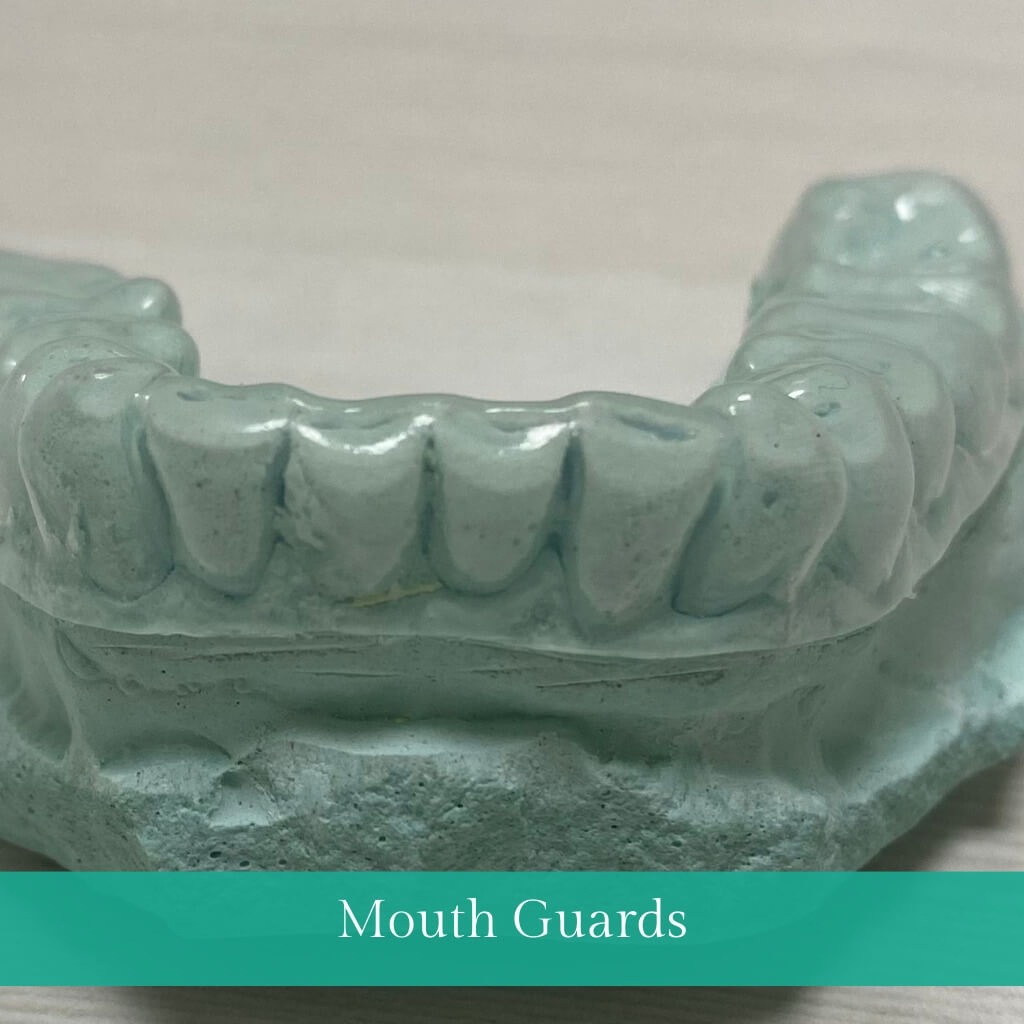A mouthguard is a protective device, often crafted from pliable materials like soft plastic, designed to shield the teeth, gums, and oral tissues during physical activities, especially those with a risk of impact or collision. Its purpose is to reduce the risk of dental injuries and other oral harm resulting from direct impacts or excessive pressure. Types of Mouth Guards
Types of Mouth Guards
Sports Mouthguards
Designed for athletes engaged in sports like boxing, wrestling, soccer, basketball, hockey, or football, these guards provide vital protection against teeth-related injuries, reducing the risk of chipped or knocked-out teeth.
Teeth Grinding Guards
These guards shield teeth from grinding and clenching effects, also offering relief for TMJ disorders. They're worn anytime, day or night, with night usage common due to nighttime teeth grinding.
Snoring and Sleep Apnea Guards
Individuals with chronic snoring or obstructive sleep apnea can benefit from custom mouthguards. These appliances adjust the jaw's position to enhance airflow during sleep.
Benefits of Mouth Guards
Protection During Sports
Mouthguards protect teeth from sports-related injuries. They are essential in high-contact sports like boxing, wrestling, soccer, basketball, hockey, and football, reducing the risk of chipped or knocked-out teeth.
Teeth Grinding (Bruxism)
Mouthguards, often called night guards when used for this purpose, protect teeth from the damaging effects of grinding and clenching. They're commonly worn during sleep to prevent enamel wear, tooth sensitivity, and related discomfort.
TMJ Disorders
Some mouthguards used for teeth grinding may also help alleviate symptoms of temporomandibular joint (TMJ) disorders by providing proper jaw alignment and reducing pressure on the joint.
Snoring and Sleep Apnea
Custom mouthguards can benefit individuals with chronic snoring or obstructive sleep apnea. These devices, often called snoring or sleep apnea mouth guards, reposition the jaw to help open the airway and improve airflow during sleep.

How to effectively maintain your mouthguard?
- Clean your mouth guard thoroughly after each use with mild soap and water or a mouth guard cleaner. Thoroughly rinse it and ensure it's completely dry before storing.
- Store your mouth guard in a well-ventilated case to protect it from damage and prevent the growth of bacteria. Prevent keeping it in a humid or confined container.
- Refrain from subjecting your mouth guard to elevated temperatures, like hot water or direct sunlight, as this could lead to warping or deformation of its shape.
- Regularly inspect your mouthguard for signs of wear and tear, such as holes, cracks, or a loose fit. If you spot any damage, replace it immediately to ensure optimal protection.
- Remember to bring your mouthguard to your dentist appointments so they can check its fit and make any necessary adjustments to ensure it continues to provide optimal protection.




